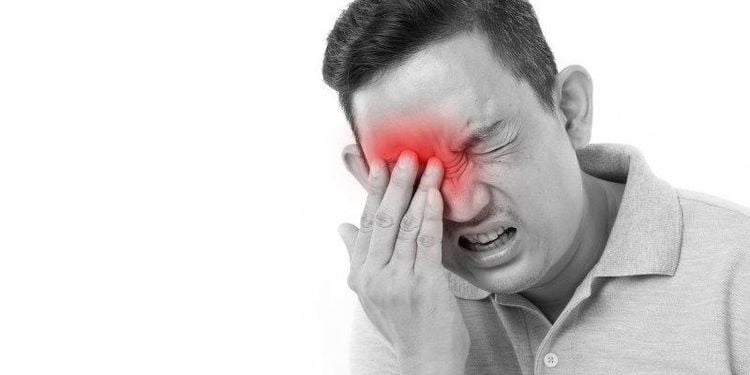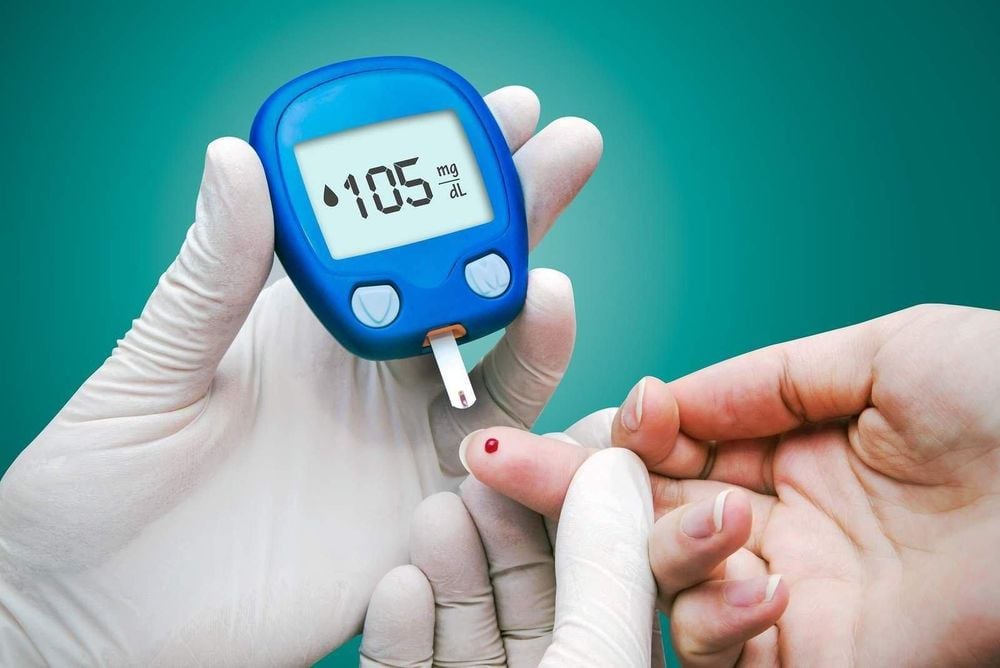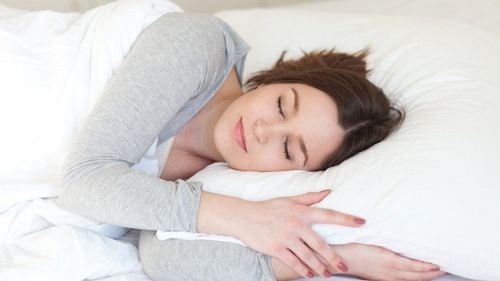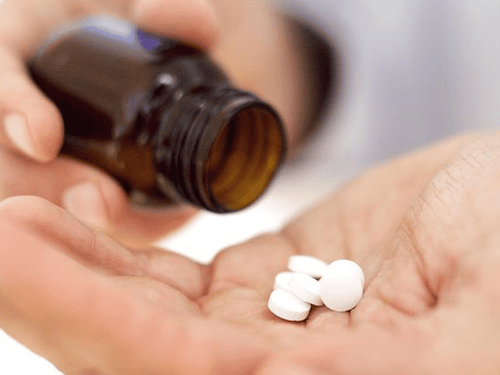This is an automatically translated article.
This article is professionally consulted by Master, Doctor Bui Ngoc Phuong Hoa - Neurosurgeon - Department of Medical Examination & Internal Medicine - Vinmec Danang International General Hospital.Neuroscientist Matthew Walker from the University of California Berkeley (USA) said that the less sleep, the shorter the life cycle. While the amount of sleep varies from person to person, most adults still need 7 to 8 hours of sleep a night.
1. The importance of getting enough sleep
Sleep is a vital need for our body. Sleep takes up 1/3 of a person's life. During sleep, our body secretes important hormones to help metabolism, accumulate energy needed for the day's activities and body growth, and help the brain to rearrange information systematically. establishes and strengthens the brain's long-term memory capacity. This is extremely necessary for the body to develop and adapt to the living environment.The long-term health consequences will far outweigh the reasons you get less sleep. An extra 2 hours of sleep a night not only improves health in general, but can also see significant changes in mental health in particular. Optimizing fat burning time, time to recharge, and self-repair are two of the many benefits of getting enough sleep. Your body will feel very grateful to you if you get enough sleep every day.
Trắc nghiệm: Bận rộn có ảnh hưởng đến sức khỏe của bạn không?
Cuộc sống hiện đại khiến chúng ta vì quá bận rộn mà quên chăm sóc sức khỏe cho chính mình. Ai cũng biết rằng lịch trình làm việc cả ngày có thể khiến bạn kiệt sức, nhưng cụ thể bận rộn ảnh hưởng thế nào tới sức khỏe? Hãy cùng làm thử bài trắc nghiệm dưới đây.
2. Sufficient sleep time varies by age
Infants (0-3 months): 14-17 hours per day Infants (4-11 months): 12-15 hours Children (1-2 years old): 11-14 hours Preschoolers (3-5 ): 10-13 hours Students aged (6-13): 9-11 hours Teen (14-17): 8-10 hours Adults (18-64): 7-9 hours Seniors (65 years old): 7-8 hours.3. Harm of not getting enough sleep
Increased risk of cancerLess and interrupted sleep increases the risk of cancer, especially colon and breast cancer.
Reduces skin resilience and causes skin aging
According to research from the University of Wisconsin (USA), lack of sleep and chronic skin diseases are closely related. When exposed to the sun or other harmful factors, the skin does not recover well and shows more signs of aging.
Obesity
Due to hormone imbalance, people who lack sleep increase their appetite, leading to obesity. In addition, they find it difficult to control behaviors that lead to self-harm. Since the link between sleep deprivation and weight gain is well recognized, the importance of getting 6 to 8 hours of sleep per day becomes more and more important in weight loss. Getting enough sleep has been shown to have the same effect on weight loss as going to the gym and eating more vegetables.

Research shows that long-term sleep deprivation makes social communication worse. They feel lonely, worse still, these people often do not sleep well, leaving themselves trapped in a vicious cycle.
Short-term, long-term memory and learning ability decline
Several studies have shown that adults with insomnia have difficulty recalling vocabulary and improving learned skills.
Linked to Alzheimer's
Getting enough sleep reduces the amount of Beta-Amyloid, a protein closely related to Alzheimer's disease.
The risk of cardiovascular diseases increases
Blood pressure, heart rate and C-reactive protein levels are higher with less sleep, thereby increasing the risk of cardiovascular diseases.
Irritability
Nearly everyone feels irritable after a sleepless night, even in everyday situations. Irritability often occurs when a person is not getting enough sleep according to their needs and due to changes in hormones. Sleep-deprived people are often irritable without any particular reason. People who are irritable are often also easily provoked.
Vision problems and hallucinations
Sleep deprivation leads to tubular vision syndrome, double vision and blurred vision. The longer you stay awake, the more likely you are to have refractive errors and hallucinations.

Sportspeople, officers and surgeons all perform poorly with less accuracy when sleep is not guaranteed.
Weakened immune system
Just one night of sleep deprivation also makes the body's immune system and the ability to absorb vaccines worse. According to a study, people who don't get enough sleep are three times more likely to catch a cold.
Reduced sex drive
Sleep helps to replenish testosterone levels in both sexes. Decreased libido, sexual dysfunction, and sleep apnea are three risks when you're sleep-deprived.
Risk of type 2 diabetes
Having to wake up when the body needs sleep disturbs the body's mechanisms, gradually leading to insulin resistance (pre-diabetes) and type 2 diabetes.

Many research results show that not getting enough sleep affects the ability to make decisions and carry out planned plans. This is also part of the cause of the Chernobyl nuclear disaster, the Exxon Valdez oil spill and the explosion of the space shuttle Challenger.
Easily distracted
If you want your brain to stay focused, try to get enough sleep. Lack of concentration can lead to many catastrophic traffic accidents due to the lack of time for drivers or pilots to rest.
Increased urinary excretion
This phenomenon comes from the mechanism of increasing urine excretion at night when sleep deprived.
Muscle weakness
Muscle damage caused by life and exercise becomes harder to heal. According to research, the body secretes growth hormone to heal wounds during sleep.
Poor pain tolerance
Chronic pain is made worse by lack of sleep increasing sensitivity or even making the human body more painful.
Sleep deprivation causes persistent fatigue
It's not surprising that lack of sleep causes fatigue, but many people don't realize that lack of sleep leads to persistent fatigue. Over time, it will take a few days to recover from the lack of sleep from the previous few days. Persistent fatigue can be caused by chronic lack of sleep.
Increased risk of death
Most surprising was the association between insufficient sleep and mortality. Sleeping less than 5 hours a night increases the risk of death by 15%, reduces the body's resistance, increases diseases. A study conducted by British researchers to examine the effect of sleep on the mortality rate of 10,000 civil servants in the UK over two decades found that: those who slept 5 hours or less on at night will be twice as likely to die as other people. The cause of death can be from any reason, especially from cardiovascular diseases.
Other health problems
Inflammatory bowel disease, irritable bowel syndrome, headaches, depression and many other serious illnesses can arise from lack of sleep. Some people even snore and are prone to sleep apnea.
Altering gene activities
A 2013 study found that poor sleep leads to abnormal gene activity. For people who slept less than six hours a night, more than 700 genes were abnormal, especially those that control the immune system and respond to stress.

4. Not getting enough sleep what to do?
The good news is that most of the negative effects of sleep deprivation will go away once you get enough sleep again. Please refer to the following suggestions for creating good sleep habits including:Go to bed as soon as tired Create a habit of going to bed and waking up at a fixed time, suitable for each day of the week Avoid meals 2-3 hours before bed If you can't fall asleep after 20 minutes of trying, go to another room and read until you feel drowsy, then go back to bed. Maintain regular daily exercise. Keep the bedroom quiet, dark and at the right temperature. Turn off electronic devices when you go to bed. A new study shows that smartphone enthusiasts who regularly update information on social networks have higher sleep disturbances and are also more sleep deprived. If sleep deprivation persists and negative symptoms persist despite practicing sleep maintenance measures, consult your doctor to ensure your well-being. Do not sacrifice your sleep because that is sacrificing health, quality of life.
Please dial HOTLINE for more information or register for an appointment HERE. Download MyVinmec app to make appointments faster and to manage your bookings easily.














